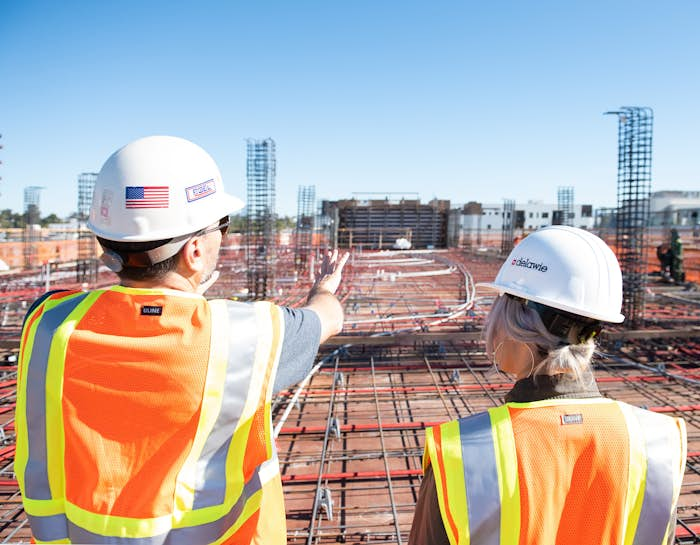727-308-2179
Log in:
727-308-2179
Log in:

Every builder warrants their work, whether they know it or not. What is included in that obligation? Who governs that warranty? Who is responsible if something goes wrong? Those details really matter for home builders.
In part one of "Building an Effective Warranty Strategy," we start by answering most basic questions: What is a third party warranty and why do I need one?
In this article, we’ll cover:
When we’re done, you’ll have a better understanding of why all builders – large and small– need a third-party warranty contract as an integral piece of their ‘risk protection’ plan.
A warranty is a guarantee that the provided workmanship and goods are covered from damages. With new construction, there are a number of elements that can (and often do) require repairs. Including but not limited to:
A warranty consists of three key elements:
Home warranties hit the scene in the 1970s, during a time of steady real estate growth. These contracts were soon acknowledged as the best way to protect both the builder and the homeowner – while introducing a level of expectations about what is and is not the builder’s responsibility after closing.
In only a few years, the idea of structural warranties became hugely popular. As the home builder is the ‘home expert,’ consumer protection courts began to implement “implied warranty” obligations on builders to ‘level the playing field.’ These Home Builder/Homebuyer court cases essentially mandated warranties on all new home sales. A warranty was an appropriate implied obligation. Leave an innocent consumer homeowner high and dry? Not a chance.
As a result, each state – via the courts and legislature – now has its own implied warranties [common law] or statutory requirements, or both. Each state is different, but it’s generally accepted that the home should be habitable and free from construction defects. However, because these warranties have been developed from court cases over time, they are vague and unclear on their requirements. Was the Home Builder negligent? Do you want that to depend on what a jury decides?
This vagueness and lack of contractual clarity creates exposure for builders. When items are not clearly defined, those issues end up NOT resolved by an express contract, but as a nebulous TORT: meaning lawsuits, expensive repairs, and an unknown limit of liability. It’s a time-consuming public process, ruining a builder’s reputation. There is truly NO good news with this option.
An Express Written warranty is one that is clearly defined and documented. This express written warranty agreement – acknowledged by the homebuyer – specifically outlines what is and what is not covered under the builder’s warranty.
More importantly, a fairly-written Express Written warranty can take the place of Implied Warranty obligations – creating clarity and helping the builder avoid court.
A written warranty allows the builder to define what is covered and to dictate alternative dispute resolution, as opposed to litigation. Most claims happen years down the road, but the rules can only be defined upfront.
A written warranty is clearly the best option for everyone involved. Litigation is ten times as expensive as ‘alternative dispute resolution’, which includes conciliation, mediation, and arbitration.
Of course, a home warranty won’t cover every issue of the new home. It’s not designed to. It will cover ‘your work’ and qualified structural defect claims’, items specifically excluded by a General Liability insurance policy. Similarly, ‘resulting damages’ and bodily injuries are covered by an insurance policy and NOT by a warranty. Too, Appliances are generally not covered by a new home structural warranty. Appliance manufacturers provide their own warranties, and there are companies who specifically will offer warranties after the manufacturers’ warranties expire.
The most standard contract – commonly called the 1-2-10- provides for a one-year warranty for labor and materials, a two-year warranty for systems, and a ten-year warranty for structural defects. The ten-year structural exposure is often transferred to the warranty company’s insurer, while the 1 and 2-year obligations remain with the builder, BUT the exposures are expressly stated in the warranty contract. The warranty insurer stands behind those obligations in the event the builder is unable to repair. Most builders prefer a third-party handling dispute resolution; from an express contract that is in black and white. Implied warranties are shades of gray. [in addition to being expensive and time-consuming and public!]
In summary, a third-party warranty helps homebuilders clearly define responsibility and allows for easier, more cost-effective dispute resolution. Learn more about the benefits of a third party warranty in part two of "Building an Effective Warranty Strategy."
With the right protection on your side, you can focus on doing what you do best — building fine homes and serving the local community — rather than fighting expensive legal battles. Take control of your construction business and limit your legal exposure by contacting Maverick to learn more.
Please note: Our team can also assist you with builder insurance products. Let us streamline risk management for your business. Ask us about our insurance offerings today.

We’re a trusted and experienced financial advisor to builder’s across the country. If you’re a homebuilder in need of structural warranties for your homes or insurance to protect your business, reach out to our team.